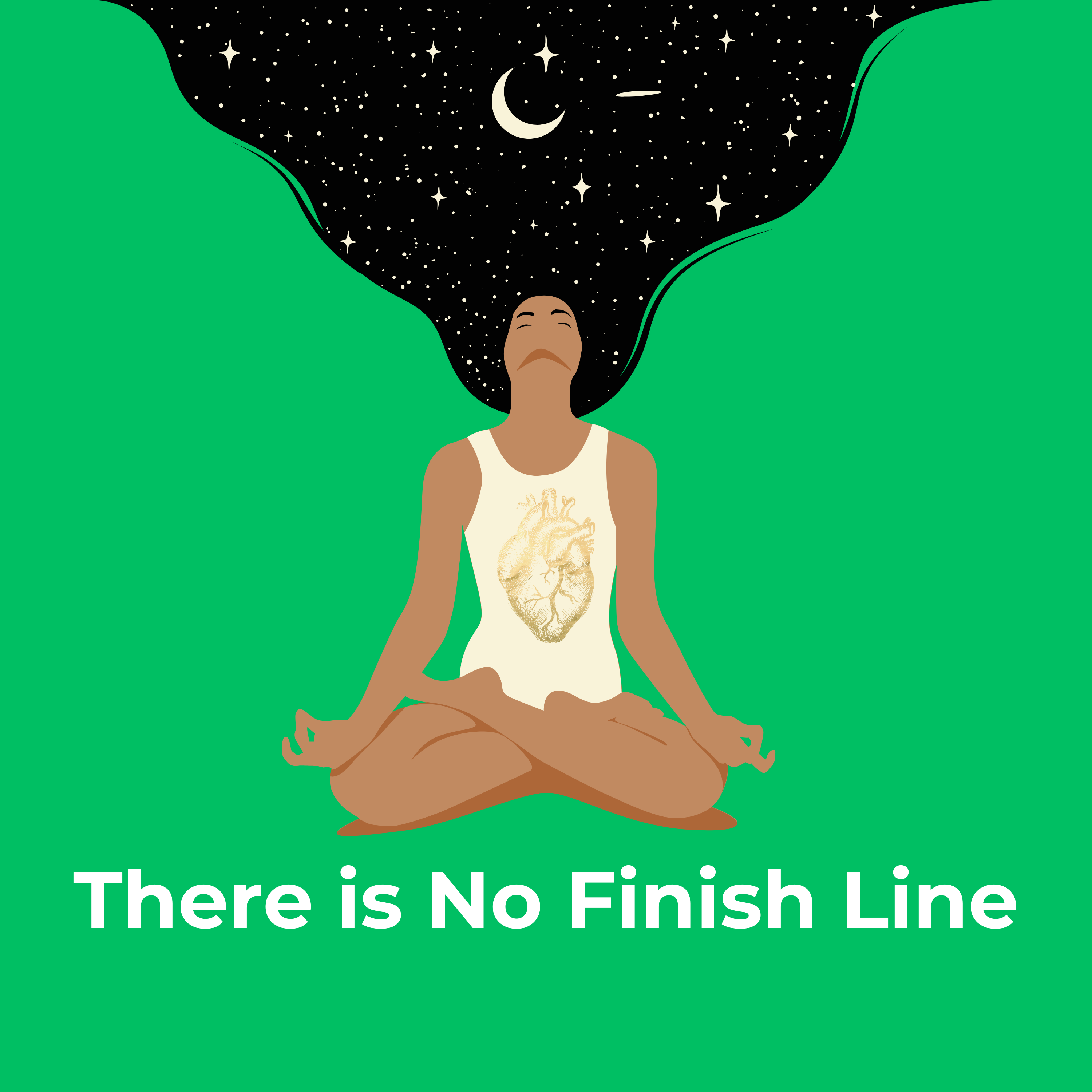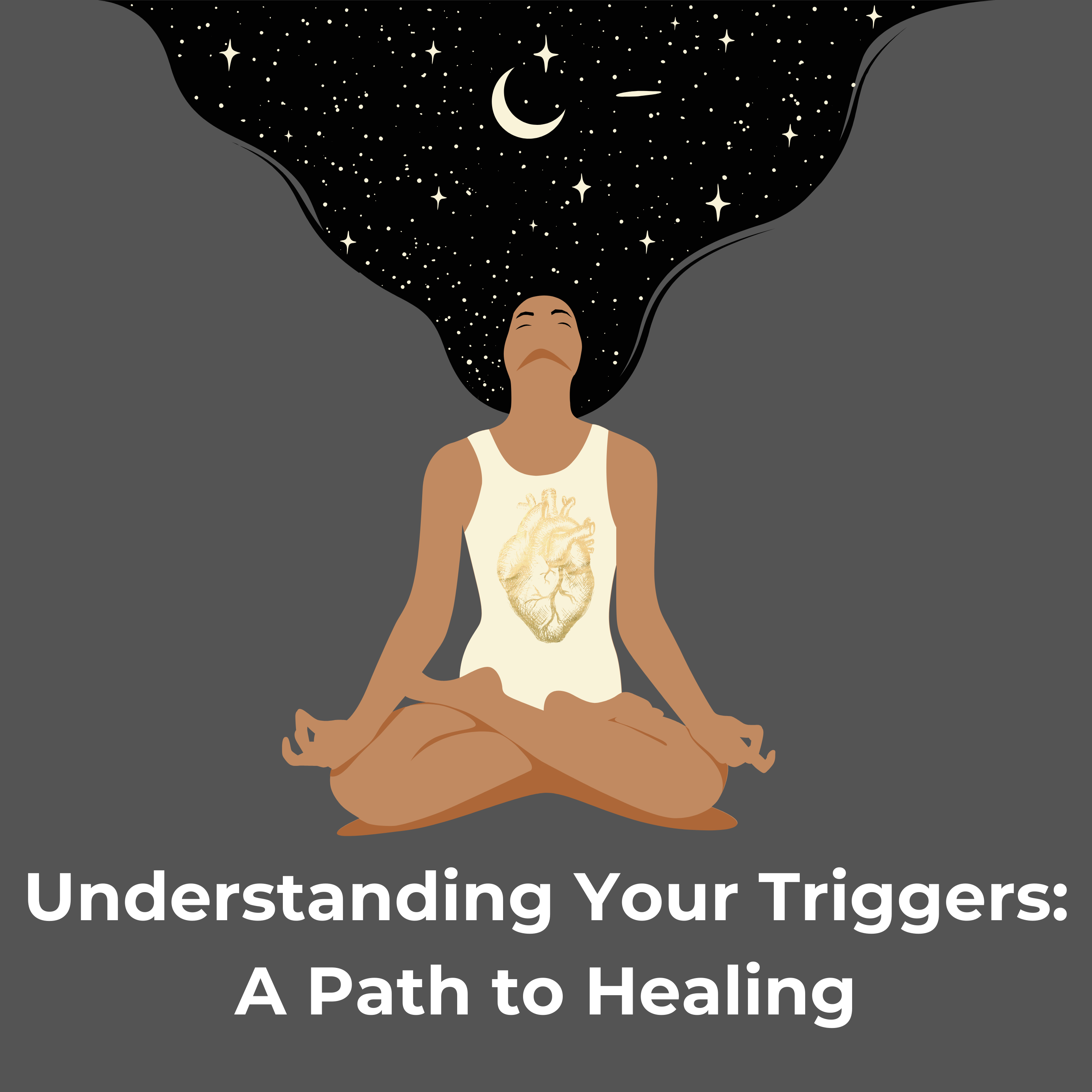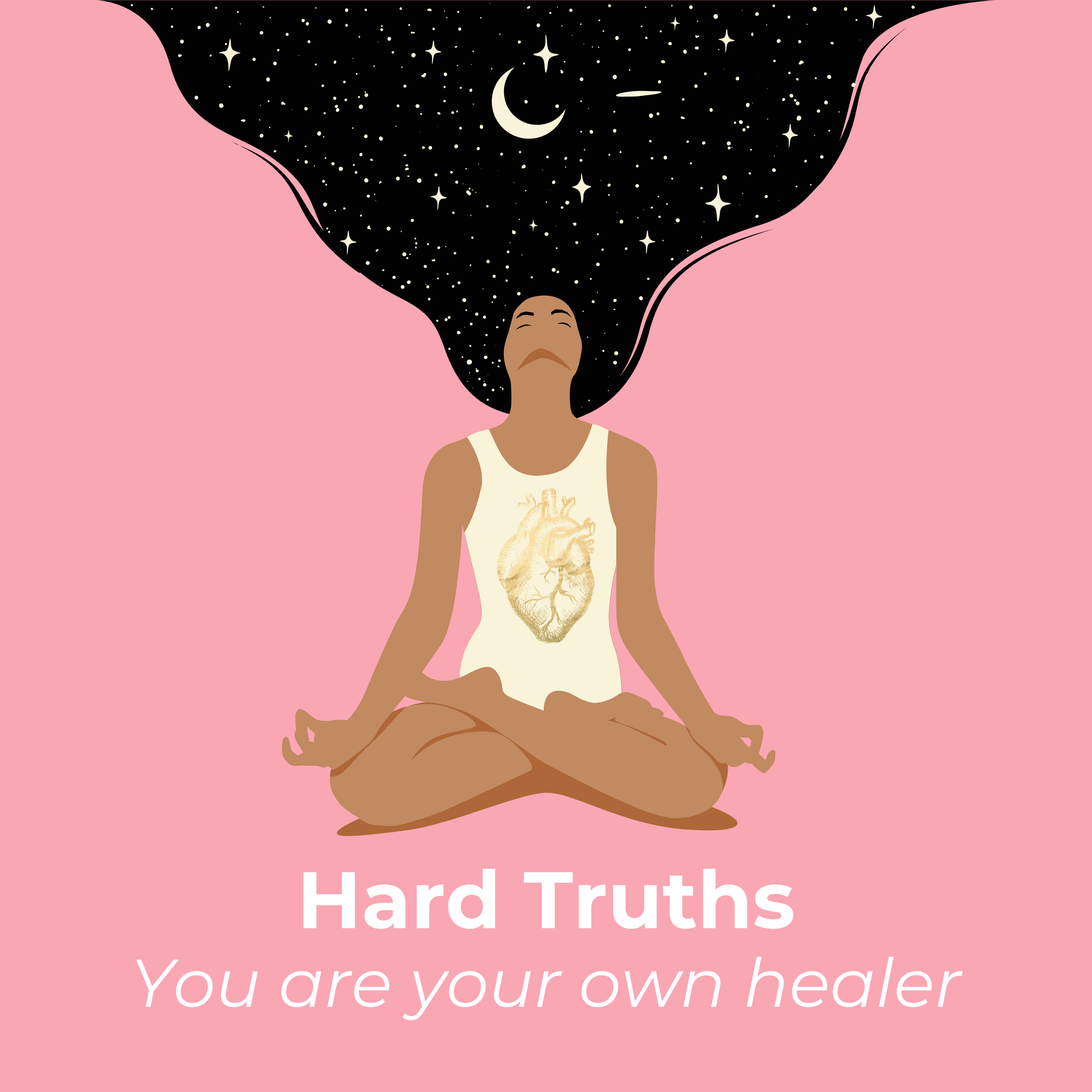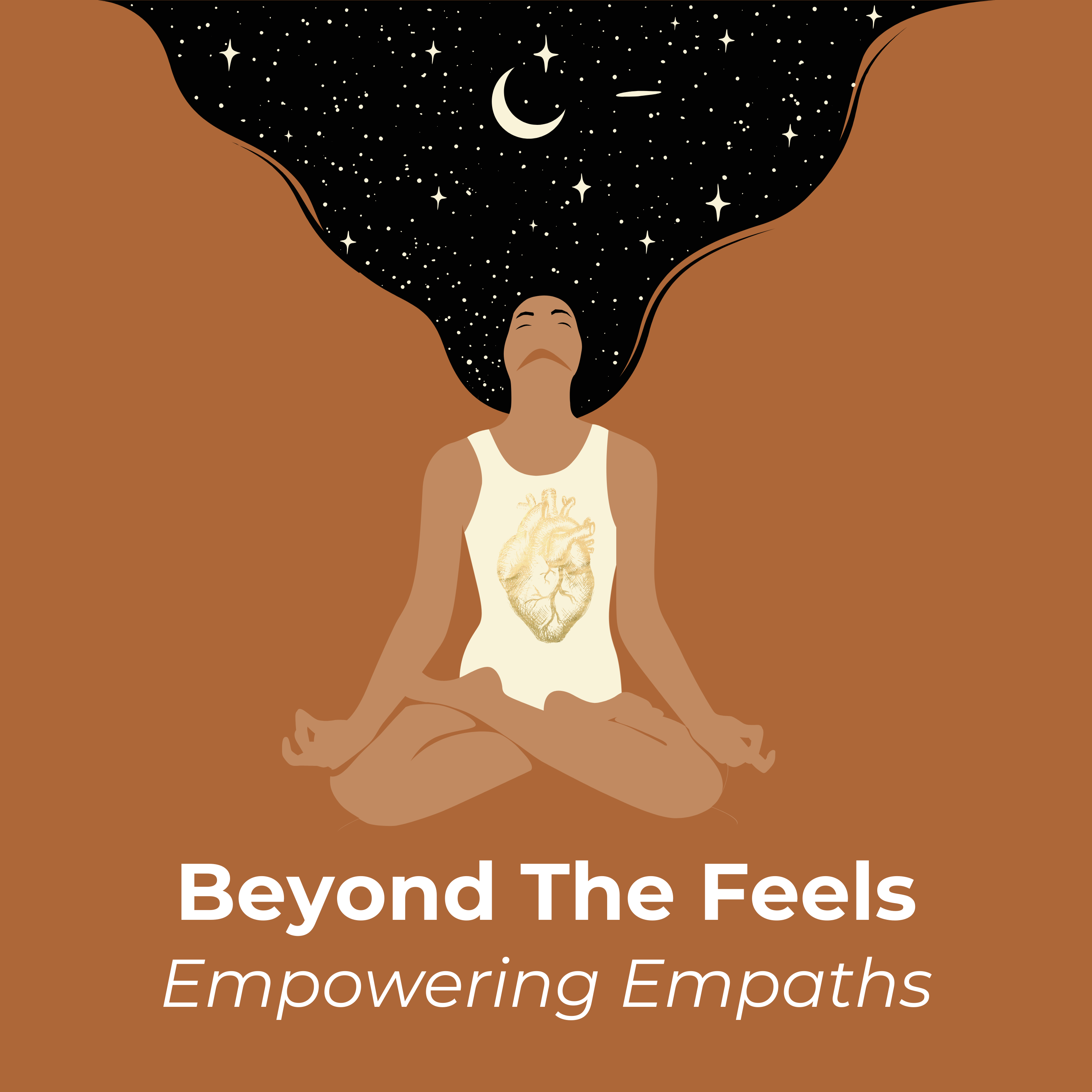Episode Transcript
[00:00:00] Speaker A: The world of healing can be treacherous, but suddenly spiritual aims to provide real, honest, practical, spiritual knowledge and wisdom for the true seekers among us.
The goal is to ignite the divine human within each listener, raising the collective consciousness for our planet. We will challenge your preconceptions, push your buttons and encourage deep reflection. We're not here to adhere to the status quo of what the new age spiritual market wants you to buy into and believe. Consider this your antidote to the woo woo and a place of woo you.
[00:00:54] Speaker B: I wish I could tell you that if you just go to this retreat, if you just go to this one retreat, all of your healing will be done and you'll be ready to go in life. Or if I could just tell you, hey, see this healer one time, they're amazing. It's going to take 5 hours and you're just going to snap out of it and all the healing that you have ever needed to do is going to be done.
You're not a car, you're not going in for a overhaul, you're not going in to have your oil changed. So healing is not a singular event. I wish I could say it was. You can definitely do a lot of impact on what you would like to heal within an intensive retreat, a ceremony or a ritual. You definitely can. This is possible.
But to believe that you have just one shot, one silver bullet, one time, and you're going to be fully and completely free of whatever you're, you're working with is setting yourself up for failure. And you're putting a lot of pressure on yourself and the facilitator of whatever you're going to, whether it be retreat or a ceremony, you're putting a lot of pressure on that person and yourself and it's almost working against you and it's blocking you from receiving everything you do or can receive in that particular healing event.
Because you're putting all this pressure and expectation and you're setting yourself up and it's almost sabotage. I think it's a form of self sabotage, but I understand where it comes from. People really, they're desperate and a lot of facilitators know that. And so they build their retreats and they market their retreats, saying like basically this is a life changing transformational time and you'll be able to let go of all of these things, which I sure people can transform and I've seen it and I've been in those spaces, I've seen incredible transformation, life, life altering choices being made for the better.
But to bank on that and to believe that that's your only shot is really doing yourself a disservice.
[00:03:18] Speaker A: I went through, I'm currently kind of going through this, and I, for me, I see it as a symptom of the capitalism, because we've been marketed and told, this thing will fix your problem. Buy it, or this thing will fix your problem. But then when this happens, then get this one. And so we've been programmed to find a solution that'll fix it, and then that's it. So part of the marketing, the brainwashing, is, do you need this to feel better? Do you need this? Well, then if you just take this, it'll solve all your problems. So it's always the promise of the finite thing. And I realized this after a while because I went through the same thing wherever I. Well, let me just get this book. If I read this book, everything will be fine, and then we're done. Like we talked about in previous episode, shunt 2.0. There we go. We're finished. As opposed to, it's always evolving. And then I kind of realized, you know, when they're talking about losing weight and all that other stuff with those promises, and that's a whole other thing where, okay, yeah, you can take this pill and then it'll do it. And then I realized I would look, not for me, but just in general.
Wait a minute, so you mean it took you a year to gain that weight and then I'm going to lose it? And half the time, wouldn't it be more sensible to think, if it took me a year to gain that, it should probably take me a year to lose it, minimum, I could probably do it in a little bit shorter time if you're doing more exercise, that sort of thing.
So if you've gone through all this trauma, or you're not a spiritual, or we've been told not to be spiritual, to undo all of that brainwashing, that trauma, that marketing we've been marketed to, wouldn't it take at least the same amount of time to figure it out, to do it? And when I realized, oh, this has been like a slow, I like to call it sandpaper, it's just a slow little thing over a number of years, do this, do this, do this. Religion says this, do this, it's not going to be the same half the time, instant. Now, I've also found that the big revelations come quick and fast.
But that instant realization, download whatever it is, was years coming.
And then it happened to happen one time, and then it opened up again. And I know for me going through this once I realized there's no quick fix, and you can't just do it because this isn't quick fix stuff that's happened to us. It's generational. It's over our lifetime of slowly trying to make us less spiritual.
So what can people do to mitigate the need for the quick fix?
[00:06:45] Speaker B: That's such a multi layered response because it is so insidious that way of thinking, and it can be found everywhere.
When you were speaking, I kept thinking about big pharmaceutical, and I remember when I was a kid, they would have these commercials for different medications. However, they wouldn't be as forthcoming with these side effects. But now I'm sure because of regulations with the FDA and in the United States, they have to be more forthcoming about what happens in terms of side effects.
The last time I watched tv, which is a long time ago, I remember it was just a paragraph of side effects. And then I was like, oh, so it's even making the thing that you're trying to solve, it's like, which one is worse, the side effects or the actual thing that I'm dealing with? And I think that's just very indicative of western culture.
We do like the quick fix. I have a fun fact about the person like the grandfather, godfather of marketing. So Edward, I believe it's Edward Bernays that is the person who created marketing, modern marketing as we know it. He was the nephew of Sigmund Freud, and he obviously was influenced by Sigmund's work. That was his uncle, and he knew how to manipulate people through marketing, and it was effective.
So this is years and years and years of programming from grandparents, great grandparents, all the way up until today. So I think the first step to really resolve this for somebody is to become aware of what is being sold to you and through whether it's podcast advertisements or YouTube advertisements, or anything on social media or television or any of the streaming platforms, look at what is being sold to you and then ask yourself, why is this being sold to me? Because clearly you're being targeted. I have been in marketing for twelve years, and we look at consumer behavior, we see what people are clicking on, we see what people are dwelling in terms of how long they're looking at something, what they're looking at, what they're clicking on. So your behavior is causing marketers to be like, oh, let's serve up ozempic to this person, or let's serve up tummy tea, or let's serve up whatever it is. So look at what is being served up to you and then determine, like, what are you searching on? What are you looking for?
Becoming really aware of your patterns, your patterns of behavior and starting to unravel.
What are the solutions that you're trying to find and how you can actually find solutions internally via meditation, via study.
Meditation is a really big, helpful thing because nothing can be really marketed to you in terms of meditation. It's something that you do on your own and you'll find answers to those questions that you're seeking. Also, Alan Watts, incredible, incredible teacher.
I highly recommend him if you're on YouTube searching Alan Watts free content or ram dass free content.
Both of them are masters at getting to the heart of the human condition and what we desire and trying to unravel what our needs are and our drives are.
[00:11:00] Speaker A: Yeah, I've definitely stumbled upon the two of them and taking certain things away again. It's not one thing, is not for everyone. But I think that's part of the revelation for me, too. As we talked about earlier, there's not going to be a finish line where it's like, okay, I'm done. It's a constant thing and it's never going to stop because it's a little bit every day, a little bit every day. And I know once I focused on the process as opposed to the end goal, it's made it more impactful, starting to be more aware of what's going on, how I'm reacting to things around me.
And I know when I realized I needed to become more spiritual or let it back into my life, because we're all spiritual beings, until I accepted the fact that it wasn't going to be easy and that I had to actually put some effort into this, it wasn't just going to happen because I sort of expected it to just happen when mentally I just went, okay, let me just be more spiritual, and it should just happen.
But I actually have to work at it. And for people who are hearing this and thinking, well, we're all spiritual beings, it should just be like an elastic band, I should just snap back into it. And all this stuff that's been thrown on me, that's kind of sticking to me like molasses, I should just be able to take a shower and it should just all come off. And right now, boom, I'm spiritual. It shouldn't take any work. So for people who do think it's easy and it should be instant, what can we help them with to, to make them realize that it's not going to be easy, it actually takes work.
[00:12:57] Speaker B: So the question is, like, what happens? It's the paradox of spirituality, the paradox of healing. What happens after you heal, what happens after you're spiritual? You said it yourself, Sean.
We're all spiritual. What is not spiritual? If we are a spiritual being having a human experience, then what is not spiritual?
It's something that you've labeled as not spiritual. So you've othered it, you've made it, you've damned it, and you've made it not spiritual.
So I think seeing everything is spiritual, which makes nothing spiritual. It's kind of a. Again, it's a paradox, but it's also very freeing because it takes away the, let me separate things out of my life. And it is a process of becoming more aware of your spirituality, which takes time, and it does take effort. It's not something that miraculously happens overnight. However, there are some yogis and some saints who basically were, it's documented where one day they were some way, and then the next day they were completely enlightened, quote, unquote, whatever that means within their construct of what enlightenment is.
[00:14:12] Speaker A: They don't talk about the lead up. They just start with the event, right?
[00:14:16] Speaker B: They're like, I'm now a saint. I perform three miracles.
Or Paul being blinded by the light and deciding that he's no longer going to persecute christians, or a yogi going into a cave for 20 years and then one day finding nirvana and becoming a saint.
They don't talk about the lead up, typically, or the lead up is very short because we love sensationalism as human beings. We love the underdog story. We love sensationalism. We love theater. We love theater. It's like, and poof, just magic. We really are invested in magic. And there is magic in healing. There definitely is. However, magic takes time, especially when you don't believe in magic. So you're a magician who doesn't believe in magic, expecting magic to happen.
And I heard a quote, and I don't know who to attribute it to. So if anybody knows who it is, please let me know. God is a comedian playing to an audience that is too scared to laugh.
And so we need to believe that healing is possible truly, deeply. We need to believe that in order for anything to take place.
And we also need to invest in the time and the energy and the effort because it's not an overnight solution.
[00:15:50] Speaker A: So I know for me, going through the process again, it's once I switch my view to journey as opposed to angle.
You know, I started wondering, there's a lot of these people who are claiming to help people literally buy this bracelet, put it on, you're done. And they're, they're nice bracelets, and there's no sizes. This is, buy this bracelet, one size fits all. If you buy this hat and put it on, it'll fix your life.
One size fits all. Once you get to this goal, you're done. Sean, 2.0.
Move on. And if you think about it, too, sometimes it's not even a good business model. It's like, oh, you don't need me anymore. Why don't I just drip you and pull you along and get as much money as I can off of you? Why am I telling you to buy this one thing? But you know what, then? Levels happen. Well, buy this one thing, and you'll get to 2.0, and you'll be perfect.
And if you want to stay there, that's cool. But then buy this other thing, and then you get to three.
I think it goes back to people who are realizing, okay, they're suddenly spiritual. Let me just put some effort into this, because I know there's a void, there's something missing, there's a hole I have to fill.
But how can they get out of that thought process of thinking, yeah, if I just do this one thing, because you would assume they're in the rat race. They're doing their thing, and they're so far to the left, they realize, okay, I even need a little bit of spirituality just to kind of offset that.
But because they're coming from that thought process, that modality of, well, my clients just need this thing when I'm at work, and I fix their problem. So now that's how I think. So now for my problem of being a little bit more spiritual, if I just do this one thing, it'll fix it.
So for people listening out there, how can they battle, push through that sort of one size fits all mentality of healing themselves?
[00:18:04] Speaker B: I think it goes back to that car analogy. You know, you're not a Tesla, where Tesla has very finite ways of creating solutions for their vehicles. I think we're so used to depersonalizing ourselves and believing that we should behave as machines.
I think this is actually an even greater, more existential issue that we're having in humanity as a whole, where we've lost touch with our own humanity.
And humanity is very, very varied and different, unique. Each person is completely whole and sovereign unto themselves. And they're an open system, open human body system, because we have inputs from the outside, but we also have this very vast internal world, if we choose to look at it that way. That's just my perspective.
And we're treating ourselves like machines, and because we're treating ourselves like machines, or we're believing we should behave like machines, then we give ourselves machine level solutions.
If your computer has a virus, you know, you take it to the computer genius bar and you have it fixed. But if you have a virus, what do you do? Well, you're an open system. You're biological, you're carbon based. You have so many other things that you need to contend with. And when you have a spiritual virus, whether it's depression or anxiety or whether it's self sabotage, there's no genius bar to take it to. You're your own genius bar. You're the one who has to find the way to resolve this very complex concern issue that you have that could come from intergenerational trauma, it could come from trauma that is happening in the here and now, in this lifetime. It could be your environment, it could be all kinds of things. So I think removing the idea that we're easily fixable machines in the first place, and regaining humanity, that we're humans, and humans are fully divine and fully human. They're both things. In my perspective, again, you can take it or leave it.
When you start not apologizing for having feelings, which I see time and time again, people doing this, we say sorry about things that there is no way we should be saying sorry about, like having human emotions. When did saying sorry about that become a thing? And I see, especially with women.
Oh, I'm sorry for having needs. I'm sorry for crying. I'm sorry for having feelings about something, being angry about something.
When we start to come back to being human beings, then we can look at solutions that are more tailored to what's going on within this human vessel, rather than looking at ourselves as machines.



